NAACL Officers 2014
Officers
| Chair | Hal Daumé III | University of Maryland | 2014-2015 |
| Secretary | Michael White | The Ohio State University | 2014-2015 |
| Treasurer | Joel Tetreault | Yahoo Labs | 2013-2014 |
| Past Chair | Chris Callison-Burch | University of Pennsylvania | 2012-2013 |
Executive Board
| Board Member | Katrin Erk | University of Texas at Austin | 2013-2014 |
| Board Member | Julia Hirschberg | Columbia University | 2013-2014 |
| Board Member | Emily M. Bender | University of Washington | 2014-2015 |
| Board Member | Eduard Hovy | Carnegie Mellon University | 2014-2015 |
Ex-Officio Board Members
| Graeme Hirst | University of Toronto | ACL Treasurer |
Nominating Committee
- Chris Brew (chair)
- Ted Pedersen
- Kristina Toutanova
- Owen Rambow
- Christopher Manning
- Dan Gildea
Chair (2014-2015) | Hal Daumé III | University of Maryland
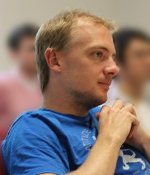
Bio
Hal Daumé III is or was: an Associate Professor at UMD in CS and Linguistics; program co-chair of NAACL 2013; NAACL exec member; ed board member for CL, JAIR and MLJ; author of the NLPers blog; assistant professor at U of Utah; grad student at ISI; intern at Microsoft; sponsorship chair for NAACL; sponsorship and pubs chair for ICML; publicity chair for ACL and ICML; avid workshop organizer and tutorial giver; amazed you read this far; former co-director of the UMD CLIP lab.
Candidacy Statement
NAACL as a conference is great, and we can improve: reviewing, physical and virtual socialization, and memory of the past. NAACL as an organization is also fantastic, and we can take an active leadership role in promoting NLP/CL as a field within the Americas.
Secretary (2014-2015) | Michael White | The Ohio State University

Bio
Michael White is an Associate Professor in the Department of Linguistics at The Ohio State University. Since obtaining his Ph.D. in Computer and Information Science from the University of Pennsylvania, he has worked for many years in the fields of natural language generation and dialogue systems, first at CoGenTex, Inc., then across the pond at the University of Edinburgh, and most recently at Ohio State. He has served as local sponsorship chair for ACL 2008 and publications co-chair for ACL 2012; served on the SIGGEN board and Computational Linguistics editorial board; co-organized an NSF workshop on shared tasks in NLG, the INLG 2008 conference, and the first surface realization shared task challenge; and helped lead OSU to become one of the top NACLO hosts in terms of participation.
Candidacy Statement
One of the main duties of the NAACL secretary is to maintain NAACL’s web presence. The last time NAACL elected a new secretary, the candidate stated that he intended to update the naacl.org website not only to look better, but also to be more functional. With Anoop Sarkar having largely accomplished this mission, I thought it might be safe to run for secretary on the platform of simply trying not to make a hash of his good work, and perhaps even trying to further his goal of archiving useful information about the NAACL conferences, such as videos of tutorials. However, I am told that the secretary is also likely be the point person on any new social media outreach NAACL might undertake. As such, I thought I should also promise to work with the NAACL board to develop and implement policies for any proposed increase in the use of social media, with the goal of raising NAACL’s visibility while avoiding embarrassing gaffes. For example, social media might be used to highlight mentions of computational linguistics in the popular press. Finally, as a board member, I would be particularly keen to support outreach efforts for students, including continued support for the NACLO competition, as well as efforts to encourage interchanges and collaborations with linguists and cognitive scientists.
Treasurer (2013-2014) | Joel Tetreault | Yahoo Labs

Bio
Joel Tetreault is a Senior Research Scientist at Yahoo Labs in NYC. Previously he was Senior Principal Manager at Nuance Communications and Senior Managing Research Scientist at Educational Testing Service. His research interests include discourse processing, grammatical error detection, automated essay scoring, anaphora, and dialogue systems. He received his PhD at the University of Rochester and was a postdoctoral researcher at the University of Pittsburgh before joining ETS. He has co-organized the Building Educational Applications workshop since 2008, served as an Area Chair for NAACL 2010, Session Chairs for NAACL 2010 and 2011, and Exhibits Chair for NAACL 2012.
Candidacy Statement
The NAACL treasurer monitors and reports on the finances of the organization, and provides feedback to the NAACL board on which practices have been successful or not. The person appointed to this position should have experience in managing budgets and be highly organized. One of my main duties as a managing research scientist at Educational Testing Service the last three years was managing the budgets for our NLP Initiative as well as individual research projects. Additionally, I believe my organizational background with co-leading the Building Educational Applications workshop for the last 6 years, and serving as Area, Exhibits and One Minute Madness Chair the last few years at NAACL, as well as maintaining the primary conference calendar for our NLP/CL community at large since 2004 (http://www.cs.rochester.edu/~tetreaul/conferences.html), make me uniquely qualified for this position.
In addition to the above duties, the Treasurer is an active member of the Board. Over the last decade, the field of Computational Linguistics has grown considerably: there are more universities and companies with CL groups and researchers, and researchers from all corners of the world attending and submitting to conferences. With the number of major conferences staying roughly the same year after year, the competitiveness has increased thus putting more pressure on reviewers to provide high quality reviews in a timely fashion. In my years reviewing and also serving as a chair for different conferences and workshops, many of the same people are repeatedly called upon to provide upwards of 6 and sometimes 10 reviews for a single conference, which is problematic when they are called upon to review for other conferences in the same time frame. In order to maintain the high quality of NAACL and associated workshops, I will 1) work to increase the number of capable reviewers such that all reviewers have a manageable load at any time, and 2) work to defining standards for reviewing such that papers in different tracks are reviewed in the same manner.
Past Chair (2012-2013) | Chris-Callison Burch | Johns Hopkins University
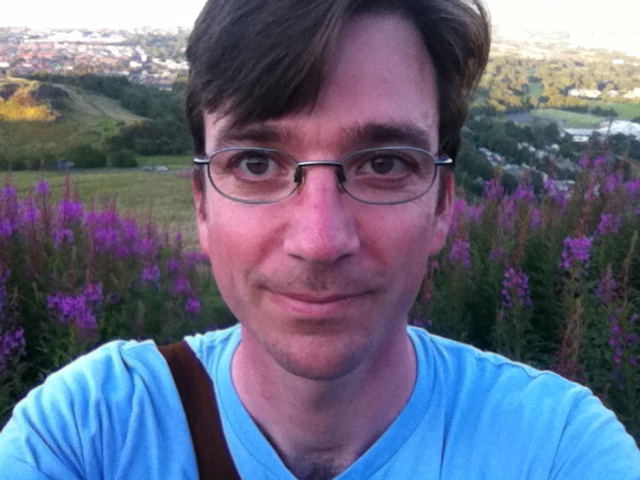
Bio
Chris Callison-Burch is an Associate Research Professor at the Center for Language and Speech Processing (CLSP) at Johns Hopkins University. He received his PhD from the University of Edinburgh’s School of Informatics in 2008 and his bachelors from Stanford University’s Symbolic Systems Program in 2000. His research focuses on statistical machine translation, crowdsourcing, and broad coverage semantics via paraphrasing. He has contributed to the research community by releasing open source software like Moses and Joshua, and by organizing the shared tasks for the annual Workshop on Statistical Machine Translation (WMT). He is on the editorial board of Computational Linguistics, and he is doing pretty well on the ACL Anthology Network leaderboard.
Candidacy Statement
The past two years as a NAACL executive board member has given me an excellent understanding of how the organization works, and what its role is beyond maintaining a high-caliber scientific conference. If I am elected chair, I will continue past initiatives like funding the NAACL summer school at Johns Hopkins University and doing active outreach to South America. I will also put forward my own agenda. I will improve reviewing by liaising with the Softconf developers to create single logins for every reviewer, and to specially treat resubmissions of rejected papers by giving current reviewers access to the previous set of reviews and to author responses. As a result of my experience digitizing videos for the past decade of the CLSP seminar series, I would like to begin an initiative to create a NAACL video archive that records the talks given at our conferences. I will give NAACL’s support for the new journal initiative. Finally, I will work to ensure that our conferences continue to be a success. (I am taking my campaign to the tweets! You can follow my outlandish campaign promises on Twitter @ccb).
Board Member (2013-2014) | Katrin Erk | University of Texas at Austin

Bio
Katrin Erk is an Associate Professor in the Linguistics Department at the University of Texas at Austin. She received her Ph.D. from the Computer Science department at Saarland University in 2002. Her research area is lexical semantics, in particular distributional models and the characterization of word meaning in context. She has previously worked on corpus annotation with semantic information (using FrameNet) and semantic role labeling. She is currently on the editorial board of Computational Linguistics, and is secretary of SIGSEM as well as a member of the executive board of SIGLEX.
Candidacy Statement
To me, one of the central characteristics of computational linguistics is its interdisciplinarity. In its (actually quite short) history, computational linguistics has drawn on linguistics, psychology/cognition, artificial intelligence, formal logic, and machine learning, to name just a few of the related disciplines. I think we need to do our best to preserve this interdisciplinarity. It is a source of new ideas and new research directions, and it helps us get a better understanding of phenomena and a notion of what the bigger picture is. And frankly, it is fun. Concretely, one area I would focus on, if elected to the board, is reviewing: We should (once more) think about how our reviewing process can best identify high-quality papers that are interdisciplinary and off the beaten track. Another area where we can foster our interdisciplinarity is the conferences: prodding people to submit tutorials and workshops that bridge disciplines, and continuing to invite plenary speakers from adjacent disciplines.
Board Member (2013-2014) | Julia Hirschberg | Columbia University
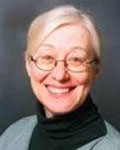
Bio
Julia Hirschberg is Professor and Chair of the Department of Computer Science at Columbia University. She does research in prosody, spoken dialogue systems, and emotional and deceptive speech. She received her PhD in Computer Science from the University of Pennsylvania in 1985. She worked at Bell Laboratories and AT&T Laboratories – Research from 1985-2003 as a Member of Technical Staff and as a Department Head, creating the Human-Computer Interface Research Department at Bell Labs and moving with it to AT&T Labs. She served as editor-in-chief of Computational Linguistics from 1993-2003 and as an editor-in-chief of Speech Communication from 2003-2006. She is on the Editorial Board of Speech Communication and of the Journal of Pragmatics. She was on the Executive Board of the Association for Computational Linguistics (ACL) from 1993-2003, have been on the Permanent Council of International Conference on Spoken Language Processing (ICSLP) since 1996, and served on the board of the International Speech Communication Association (ISCA) from 1999-2007 (as President 2005-2007). She is currently the chair of the ISCA Distinguished Lecturers selection committee, is on the IEEE SLTC, and serves on the board of the CRA-W. She has been active in working for diversity at AT&T and at Columbia. She has been a fellow of the American Association for Artificial Intelligence since 1994, an ISCA Fellow since 2008, and became an ACL Fellow in the founding group in 2012. She received a Columbia Engineering School Alumni Association (CESAA) Distinguished Faculty Teaching Award in 2009, received an honorary doctorate (hedersdoktor) from KTH in 2007, is the 2011 recipient of the IEEE James L. Flanagan Speech and Audio Processing Award and, also received the ISCA Medal for Scientific Achievement in the same year.
Candidacy Statement
My goal in joining the NAACL board would be twofold: a) to increase participation of researchers in speech and audio processing and in image and video in NAACL conferences and activities; and b) to increase the participation of women and minorities in computational linguistics. Since my PhD research at UPenn I have worked to broaden participation in NLP in terms of genre and ethnicity/gender. My own work has attempted to combine NLP with speech processing. I have attempted to increase participation of women and minorities in NLP since my PhD, but supporting diversity at Bell Labs, AT&T Labs, Columbia, and the broader community. I have also tried to broaden the scope of computational linguistics research to include interdisciplinariy work in the humanities and social sciences, as well as more practical engineering endeavors.
Board Member (2014-2015) | Emily M. Bender | University of Washington
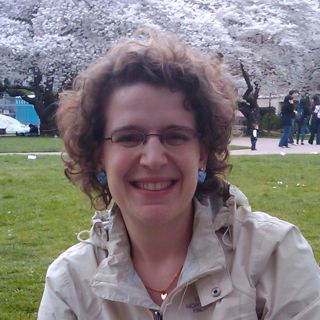
Bio
Emily M. Bender is an Associate Professor of Linguistics and an Adjunct Associate Professor of Computer Science and Engineering at the University of Washington, where she has been a member of the faculty since 2003. Her primary research interests are in multilingual grammar engineering and deep linguistic processing. She is the Linguistic Society of America’s delegate to the ACL and the faculty director of UW’s professional MS in Computational Linguistics. In 2009 she co-organized a panel session on computational methods in support of linguistic analysis at LSA and an NSF-sponsored workshop on Cyberinfrastructure for Linguistics.
Candidacy Statement
If elected to the NAACL board, I will focus my efforts on the three Rs: Reproducibility, Reviewing, and Reinvigorating interdisciplinarity in our field.
Reproducibility is the hallmark of scientific work. The recent move to allow publication of data and code in ACL-published proceedings is an enormous step towards reproducibility. NAACL-HLT should absolutely participate in this trend. However, there is still work to be done to make sure that the published resources are in fact useful in advancing the state of the art. For example, CC BY-NC-SA 3.0 is not the right license for every NAACL-HLT author. Furthermore, we have not yet worked out how to efficiently and effectively review these materials.
Reviewing is central to the quality of conferences and publications. The reputation of the NAACL-HLT conference elicits considerable effort on the part of reviewers, yet there is still room to improve the way that that effort is focused. A system of incentives to encourage reviewing that is fair, rigorous, and constructive could include feedback to reviewers by area chairs, co-reviewers and even authors as well as recognition for outstanding reviewing.
Reinvigorating interdisciplinarity: Solving big problems in human language technology requires both sophisticated algorithms and understanding of the domain of application of those algorithms. Yet, the integration of linguistic knowledge in our field falls short of this ideal. I will work towards bringing relevant Linguistics to NAACL in the form of tutorials, building connections to NASSLLI, and other means of making Linguistics accessible to HLT researchers.
Board Member (2014-2015) | Eduard Hovy | Carnegie Mellon University
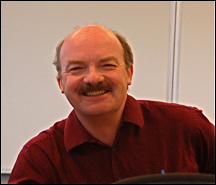
Bio
Eduard Hovy recently joined the Language Technologies Institute at CMU, after heading the Natural Language Group at USC/ISI for many years. He has performed research in topics like coreference, summarization, text mining, information extraction, QA, machine translation evaluation, and language generation. He served as the President of ACL in 2001.
Candidacy Statement
I have two goals. First, NAACL is ten years old this year. It has developed rather differently than was originally intended, and does not fulfill its potential as a bridge between other more-mature areas of language technology (including IR and Speech Recognition). It was suggested that I (as one of the establishers of the society) may help in exploring a wider role for the NAACL and the conference. Second, as described in www.force11.org, the potential of new forms of publication (pdf+code+corpus, interrelated with other publications, with tools to analyze and process them in interesting ways) is a vision that can deeply change all of scholarly publication, in sciences and humanities alike. Our community is the one to make [much of] this possible. I would like to make this happen.